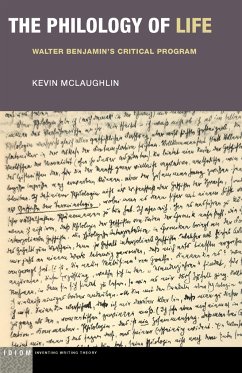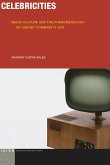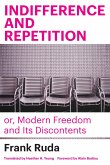"McLaughlin's book is a model of literary studies in which the idea of life becomes a primary focal point. This life is neither the typical material of literary biography nor the 'mere life' that comes under discussion in assessments and critiques of biopolitics. By presenting the question of life as fundamentally a matter of reading, McLaughlin's biophilology makes an invaluable contribution to our understanding of Benjamin's early work as well as the theory of literature in general."--Peter Fenves, Northwestern University "This is a rare book that addresses Benjamin as reader of literature, as a failed academic Literaturwissenschaftler but a highly successful, even prophetic reader. The manuscript is marked by a lapidary quality that speaks to the expertise and depth of the author's approach."--Leif Weatherby, New York University The Philology of Life retraces the outlines of the philological project developed by Walter Benjamin in his early essays on Hölderlin, the Romantics, and Goethe. This philological program. McLaughlin shows, provides the methodological key to Benjamin's work as a whole. According to Benjamin, German literary history in the period roughly following the first World War was part of a wider "crisis of historical experience"--a life crisis to which Lebensphilosophie (philosophy of life) had instructively but insufficiently responded. Benjamin's literary critical struggle during these years consisted in developing a philology of literary historical experience and of life that is rooted in an encounter with a written image. By bringing this innovative method to light this study proposes "the philology of life" as the key to the critical program of one of the most influential intellectual figures in the humanities. Kevin McLaughlin is Dean of Faculty at Brown University, where he serves as George Hazard Crooker University Professor of English, Comparative Literature, and German Studies. He is the author of three books and co-translator of Walter Benjamin's Arcades Project.
Hinweis: Dieser Artikel kann nur an eine deutsche Lieferadresse ausgeliefert werden.
Hinweis: Dieser Artikel kann nur an eine deutsche Lieferadresse ausgeliefert werden.








